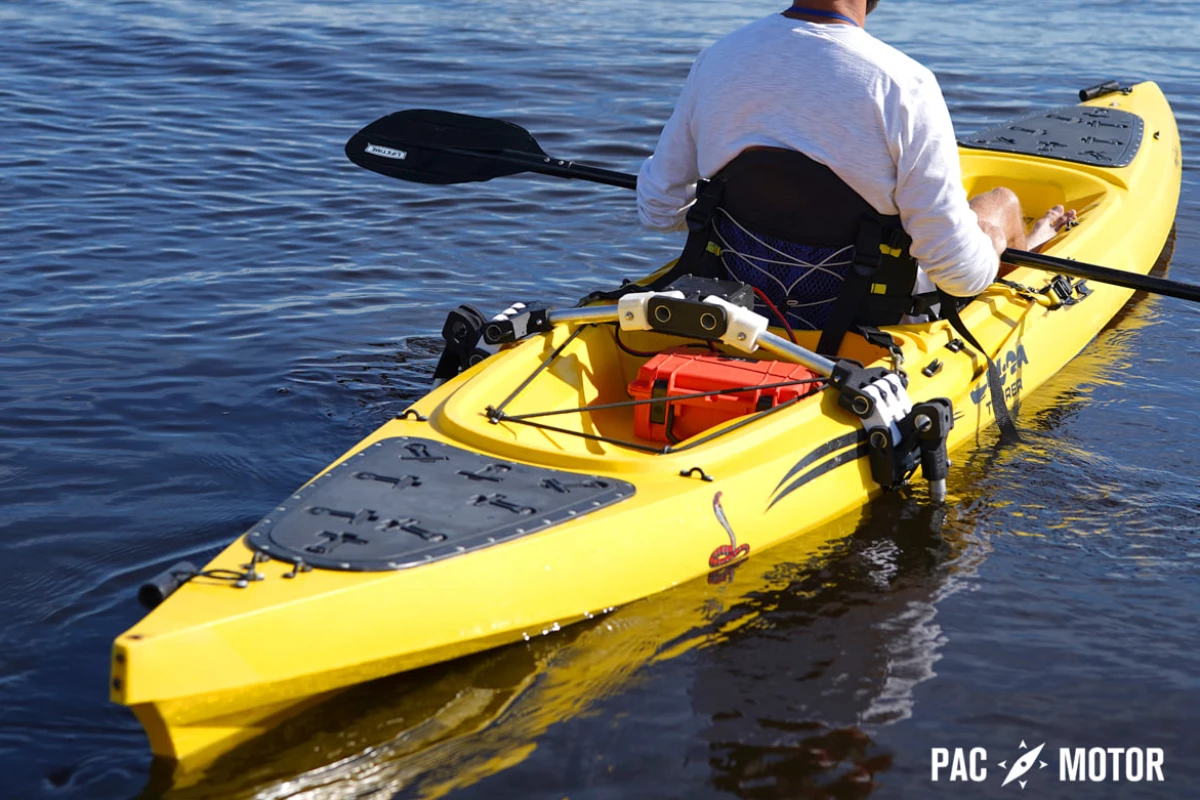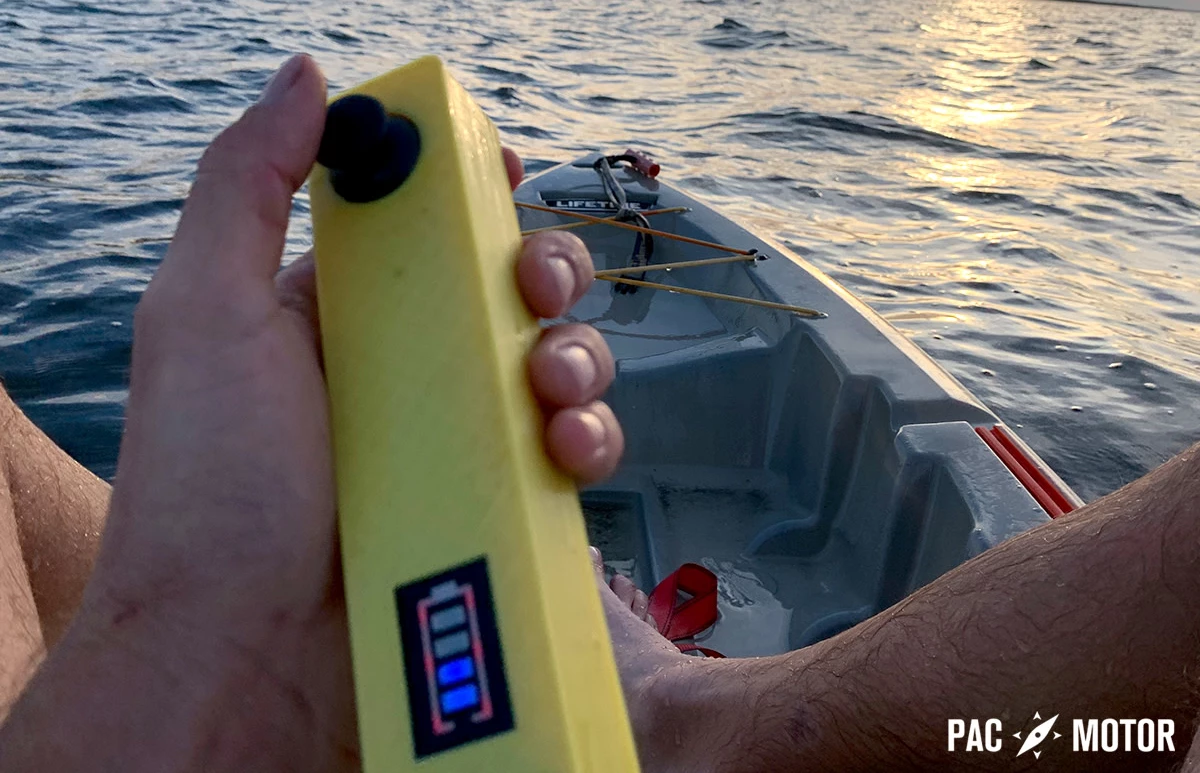Although most kayakers like their boats specifically because they're human-powered, a motor could help out in some scenarios. And while there are already pre-motorized kayaks, the PacMotor system adds two motors to an existing boat.
There are three parts to the setup – a dual-motor assembly that gets strapped onto the hull behind the cockpit, a hard-wired 16.8V/39-Ah lithium battery pack, and a waterproof floating Bluetooth remote control unit.
Each motor is located on the end of a folding aluminum arm. Those arms are pulled up out of the water when no electrical assistance is required, and get folded down over either side of the kayak when a boost is needed. They're then activated by the joystick remote.

Because the two motors operate independently, the system is able to turn the boat to either side by varying their thrust relative to one another. It's even possible to spin the kayak around on the spot, by running the motors in opposite directions. And as a safety feature, the motors won't run if the remote's Bluetooth signal isn't detected.
According to the Florida-based PacMotor company, one charge of the battery should be good for over three hours of use. The system has a top speed of 6 mph (10 km/h), it can be used in salt or fresh water, and the motor unit is claimed to tip the scales at 9 lb (4 kg) while the battery weighs around 10 lb (4.5 kg).
It's an intriguing setup, although we're not sure how compatible the motor unit's mounting system would be with different hull shapes and materials. Additionally, while the website shows the battery nestled in a depression on the kayak's rear deck, such a convenient storage spot wouldn't be available on many boats. Sticking the battery between your legs in the cockpit, or trying to cram it into the rear cargo compartment (which would have to remain open), would be pretty awkward and perhaps even a bit unsafe.
In any case, if you're interested in getting a PacMotor system of your own, you can register for updates via the company website – a Kickstarter campaign is planned to start in November. The planned retail price is US$799, although a 30-percent discount is being offered to early birds.
Source: PacMotor





